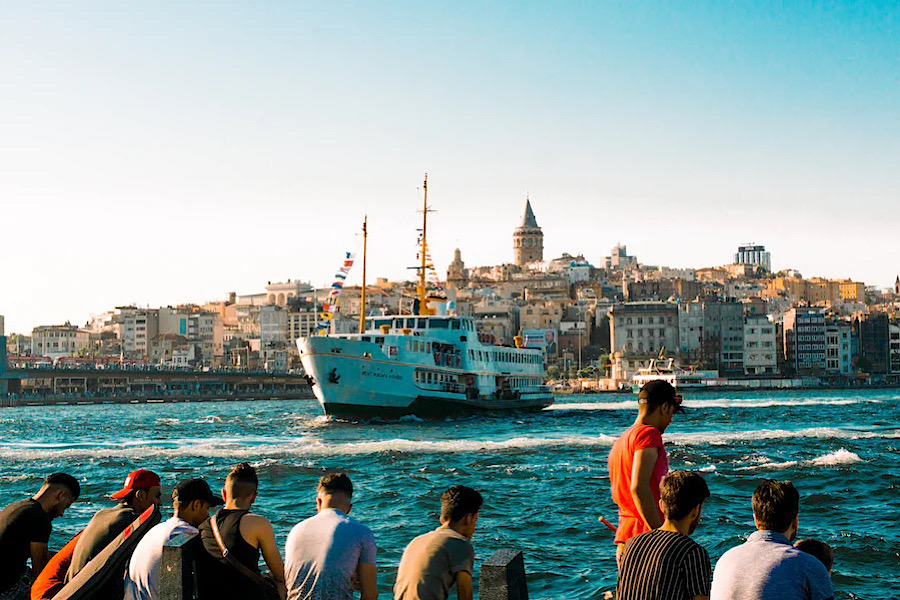Marginalization and hatred: Syrian refugees, 'invisible victims' of the earthquake in Turkey
A study entitled "Migrants and the earthquake" highlights the critical issues of a large portion of the population affected by the earthquake but on the margins of the aid chain. Even today there is profound uncertainty about the real number of dead. Ankara wants to repatriate at least one million out of 3.5 million. School dropout among children will eventually fuel child labour.
Istanbul (AsiaNews) - "They accused us of hassling people, but you don't see anyone around here". Sheikh Ahmad Al Ahmad, an Islamic expert and manager of a dusty center for Syrian refugees in southwestern Turkey, recounts the plight of the many families who have been staying inside for months because they were forced to leave their homes following the devastating earthquake of 6 February. Following the complaint, the police intervened to destroy part of the tents in which the refugees lived.
"We are short of donors," he adds, and soon there will be no food or basic necessities left for their survival. One testimony, among many, collected by The National and which confirms the climate of xenophobia and hatred towards the 3.5 million Syrian refugees in Turkey, fueled by the same authorities who want to expel at least one million.
Refugees, especially Syrians, are considered the "invisibles" of the catastrophe, the "scapegoat" for the critical issues - especially economic and social - that characterize the country in this historical period.
The weak link in a chain of harassment and exploitation in the workplace, with lower wages and conditions - in some cases - bordering on slavery, added to a cost of living that has skyrocketed due to the devaluation of the local currency.
Their situation, more than six months after the devastating earthquake, is becoming increasingly dramatic and the complaints of associations or activist groups have so far been of little use.
The confirmation comes from a three-part study edited by Professor Didem Danış, president and founder of the Migration Research Association (Gar), entitled "Migrants and the earthquake", which shows an alarming picture.
They are "the invisible victims of the catastrophe" explains Danış, a professor at Galatasaray University, one of the most authoritative in Istanbul, the economic and commercial heart of Turkey.
There are at least 1.7 million in the areas affected by the earthquake, especially among Syrians fleeing the war and benefiting from temporary protection, to which are added refugees and expatriates for economic reasons from other countries.
"About 12% of the population affected in various ways by the earthquake - she explains to the Turkish site Bianet - is made up of migrants".
The official victims according to the Turkish Ministry of the Interior are at least 7300, however there is profound uncertainty - if not mistrust - around the numbers as already happened in the bloodiest phases of the Covid-19 pandemic in which the deaths among migrants, refugees and foreigners were underestimated.
To amplify the extent of the deaths there is also the fact that this segment of the population lived in devastated apartments and houses, in the basement or in the basement, without any escape route or safety when the first tremors began.
In recent months, the tragedy in terms of loss of human life has been compounded by a climate of marginalization and open hostility. “Immediately after the earthquake - explains the expert - they were accused of looting and theft. They have been subjected to hate speech and speech.”
A critical situation that has prompted many to leave, towards a new exodus in a context of profound uncertainty and criticality, also because the government and international agencies have effectively relegated them to the margins of the aid chain.
“Ultimately, they found themselves - he continues - between two fires: to remain in the earthquake zone, unable to find new housing or resources to satisfy daily needs, or to leave and move to other provinces, or abroad, with the prospect of a future even more uncertain.
In addition to housing, food, resources and work problems, the youngest have in many cases had to interrupt their studies. “The families of migrants who have left the earthquake zone - explains the founder Gar - have encountered considerable difficulties in enrolling their children in the schools in the cities to which they have moved.
Children have been excluded from the education system and this will lead to an increase in the school dropout rate and the number of working children”.
Emotional detachment, anxiety, poverty and marginalization, the prospect of repatriation, the feeling of being truly "unwanted" in a nation that is no longer willing to host them in the name of the "nationalism and Islam" policy desired by President Recep Tayyip Erdogan and which had pushed Ankara to welcome large numbers of them in the past.
The integration process, concludes the expert, seems to have failed, replaced by hatred and discrimination as emerged in the last electoral campaign, in which one of the most popular slogans and policies was precisely that of sending them "home".
19/12/2024 15:01
11/08/2017 20:05
11/05/2022 12:11







.png)










